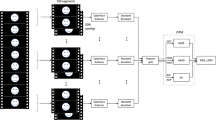Abstract
The engagement of a student is a vital part of an online learning environment, however, because of the spatial separation between instructors and students in an online environment, it is often very difficult to measure the level of engagement in online learning. Higher levels of engagement are often related to a better sense of well-being, and are more related to emotions like happiness. In this paper, two state-of-the-art models that can help measure engagement and emotions are tested, in this case, we investigated suitability of two popular models: XCeption Architecture proposed for the DAiSEE dataset, and the DeepFace Emotion Recognition model. Both models are then applied in a real-life test, using real students in an online class, we measured their emotions using the models and then compared the results to obtain the effectiveness of correctly measuring the engagement and emotions of the students. We interpret the findings from our experimental results based on psychology concepts in the field of engagement.
Access this chapter
Tax calculation will be finalised at checkout
Purchases are for personal use only
Similar content being viewed by others
References
Abedi, A., Khan, S.: Affect-driven engagement measurement from videos. arXiv preprint arXiv:2106.10882 (2021)
Chollet, F.: Xception: deep learning with depthwise separable convolutions. In: Proceedings of the IEEE Conference on Computer Vision and Pattern Recognition (CVPR), July 2017
Dewan, M.A.A., Lin, F., Wen, D., Murshed, M., Uddin, Z.: A deep learning approach to detecting engagement of online learners. In: 2018 IEEE SmartWorld, Ubiquitous Intelligence and Computing, Advanced and Trusted Computing, Scalable Computing and Communications, Cloud and Big Data Computing, Internet of People and Smart City Innovation (Smart-World/SCALCOM/UIC/ATC/CBDCom/IOP/SCI), pp. 1895–1902. IEEE (2018)
Dhall, A., Sharma, G., Goecke, R., Gedeon, T.: EmotiW 2020: driver gaze, group emotion, student engagement and physiological signal based challenges, pp. 784–789. Association for Computing Machinery, New York (2020). https://doi.org/10.1145/3382507.3417973
Geng, L., Xu, M., Wei, Z., Zhou, X.: Learning deep spatiotemporal feature for engagement recognition of online courses. In: 2019 IEEE Symposium Series on Computational Intelligence (SSCI). pp. 442–447. IEEE (2019)
Hu, M., Li, H., Deng, W., Guan, H.: Student engagement: one of the necessary conditions for online learning. In: 2016 International Conference on Educational Innovation through Technology (EITT), pp. 122–126 (2016). https://doi.org/10.1109/EITT.2016.31
Joo, B.K., Lee, I.: Workplace happiness: work engagement, career satisfaction, and subjective well-being. Evidence-Based HRM: Glob. Forum Empir. Scholarsh. 5(2), 206–221 (2017). Emerald Publishing Limited. https://doi.org/10.1108/EBHRM-04-2015-0011, https://doi.org/10.1108/EBHRM-04-2015-0011
Kamat, Y.: Edumeet (2020). https://github.com/yogesh-kamat/EduMeet
Kuruvayil, S., Palaniswamy, S.: Emotion recognition from facial images with simultaneous occlusion, pose and illumination variations using metalearning. J. King Saud Univ. Comput. Inf. Sci. (2021). https://doi.org/10.1016/j.jksuci.2021.06.012, https://www.sciencedirect.com/science/article/pii/S1319157821001452
Liao, J., Liang, Y., Pan, J.: Deep facial spatiotemporal network for engagement prediction in online learning. Appl. Intell. 51(10), 6609–6621 (2021). https://doi.org/10.1007/s10489-020-02139-8
Pranav, E., Kamal, S., Satheesh Chandran, C., Supriya, M.: Facial emotion recognition using deep convolutional neural network. In: 2020 6th International Conference on Advanced Computing and Communication Systems (ICACCS), pp. 317–320 (2020). https://doi.org/10.1109/ICACCS48705.2020.9074302
Prospero, M.R., Lagamayo, E.B., Tumulak, A.C.L., Santos, A.B.G., Dadiz, B.G.: Skybiometry and affectnet on facial emotion recognition using supervised machine learning algorithms. In: Proceedings of the 2018 International Conference on Control and Computer Vision. ICCCV 2018, pp. 18–22. Association for Computing Machinery, New York (2018). https://doi.org/10.1145/3232651.3232665
Raschka, S., Patterson, J., Nolet, C.: Machine learning in python: main developments and technology trends in data science, machine learning, and artificial intelligence. Information 11(4), 193 (2020). Multidisciplinary Digital Publishing Institute. https://doi.org/10.3390/info11040193, https://www.mdpi.com/2078-2489/11/4/193
Sanz Fernandez, J., Gutierrez, S., Garcia Vera, M.P., Sanz Fernandez, J., Gutierrez, S., Garcia Vera, M.P.: Propiedadespsicométricas de la Escala de Valoración del Estado de Ánimo (EVEA): una revisión (2014). Sociedad Española para el Estudio de la Ansiedad y el Estrés (SEAS). https://eprints.ucm.es/id/eprint/58409/
Serengil, S.I., Ozpinar, A.: Hyperextended lightface: a facial attribute analysis framework. In: 2021 International Conference on Engineering and Emerging Technologies (ICEET), pp. 1–4. IEEE (2021). https://doi.org/10.1109/ICEET53442.2021.9659697
Tamilselvi, M., Karthikeyan, S.: An ingenious face recognition system based on hrpsm_cnn under unrestrained environmental condition. Alex. Eng. J. 61(6), 4307–4321 (2022)
Thiruthuvanathan, M.M., Krishnan, B., Rangaswamy, M.: Engagement detection through facial emotional recognition using a shallow residual convolutional neural networks. Int. J. Intell. Eng. Syst. 14(2) (2021)
Whitehill, J., Serpell, Z., Lin, Y.C., Foster, A., Movellan, J.R.: The faces of engagement: automatic recognition of student engagementfrom facial expressions. IEEE Trans. Affect. Comput. 5(1), 86–98 (2014)
Xie, H., Feng, S., Wang, D., Zhang, Y.: A novel attention based CNN model for emotion intensity prediction. In: Zhang, M., Ng, V., Zhao, D., Li, S., Zan, H. (eds.) NLPCC 2018. LNCS (LNAI), vol. 11108, pp. 365–377. Springer, Cham (2018). https://doi.org/10.1007/978-3-319-99495-6_31
Author information
Authors and Affiliations
Corresponding author
Editor information
Editors and Affiliations
Rights and permissions
Copyright information
© 2023 The Author(s), under exclusive license to Springer Nature Switzerland AG
About this paper
Cite this paper
Andrés, N., Gonzalez, O., Freddy, T. (2023). Use of the Student Engagement as a Strategy to Optimize Online Education, Applying a Supervised Machine Learning Model Using Facial Recognition. In: Botto-Tobar, M., Zambrano Vizuete, M., Montes León, S., Torres-Carrión, P., Durakovic, B. (eds) Applied Technologies. ICAT 2022. Communications in Computer and Information Science, vol 1755. Springer, Cham. https://doi.org/10.1007/978-3-031-24985-3_21
Download citation
DOI: https://doi.org/10.1007/978-3-031-24985-3_21
Published:
Publisher Name: Springer, Cham
Print ISBN: 978-3-031-24984-6
Online ISBN: 978-3-031-24985-3
eBook Packages: Computer ScienceComputer Science (R0)




